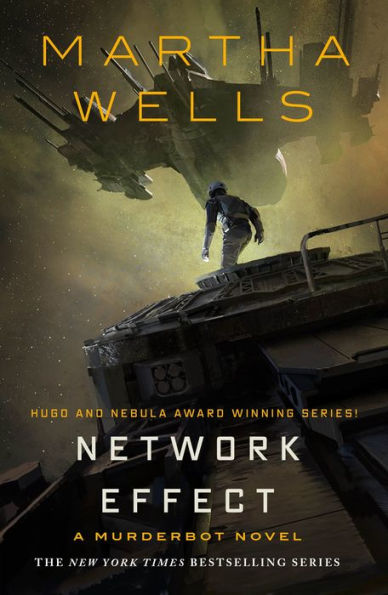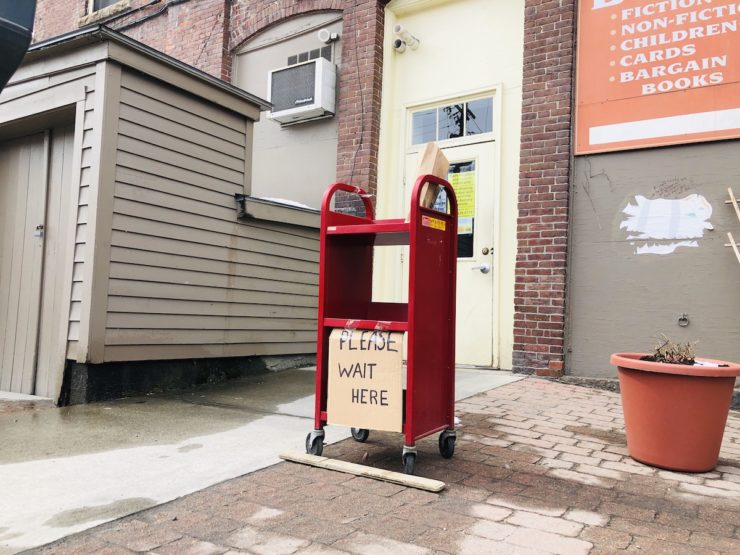When I pulled up to the parking lot behind my local bookstore, I was greeted with an empty stand and a sign on the door saying the store was only open for online orders. It was the middle of March, and Vermont Governor Phil Scott had just announced that businesses and schools throughout the state were to shut down to slow the spread of COVID-19.
Bear Pond Books of Montpelier Vermont had been slightly ahead of the curve. On March 13th, it announced a variety of options for customers to pick up books: free shipping for purchases, free local delivery (for orders of $50 or more), and curb-side, contactless pickup. Just over a week later, further restrictions came down: Non-essential businesses had to close down and the store was forced to suspend curb-side pickup, and rely on online ordering.
“Since then we’re running an on-line business only with myself and partner in the store (as owners we’re allowed to be there) and one employee working from home,” says Claire Benedict, the store’s co-owner. (Disclaimer: I worked for Bear Pond years ago, and am a frequent shopper.) “We implemented all these changes on the fly and it wasn’t always smooth. Changing from a bricks & mortar retail operation to essentially an online fulfillment center overnight required changing everything about how we do business and it did not come naturally.”
Buy the Book


Network Effect
Since the outbreak of COVID-19 began sweeping across the country, independent bookstores have faced similar problems: the sudden stop in customers who stopped by their shelves to browse for their next reads. To stay afloat, a number have turned to a wide range of new tactics to connect their customers with their next read. According to a survey from trade publication Publishers Weekly, the situation is dire for indie bookstores as sales have plummeted: “The results suggest extreme decreases in profit margins and largely insufficient online sales to make up for the decreased margins. The results are layoffs and furloughs at more than 80% of the bookstores who took part in the survey.”
Those tactics include a wide range of options for customers. Benedict noted that her store was relying on online orders, while others have offered free or heavily discounted shipping for those orders. Others, like Bear Pond, worked to entice customers by offering boxes of free advanced reader copies. Some, like the Yankee Bookshop in Woodstock, Vermont, still offer free delivery to local customers.
Publishers Weekly notes that some stores were able to generate considerable support by selling gift cards, allowing customers to provide them with additional funds at a needed time. In some instances, some stores saw record sales.
Others have turned to some other innovative ways to drum up support and additional revenue: Brooklyn’s Books Are Magic and Brookline’s Brookline Booksmith recently released some special edition t-shirts: Stay Safe! Read Books! and Stay Local + Open Books. Others, like Mysterious Galaxy in San Diego have launched a series of virtual events, such as live-streamed panels or social media takeovers. For stores that have canceled in-person events, they’ve set up online replacements.
Some bookstores have received support through a couple of newer platforms: Bookshop.org, which launched in January, and Libro.fm, an audiobook platform that partners with indie bookstores.
Bookshop.org provides bookstores with some help selling books online. That platform originated out of complaints that the existing platform for indie stores, IndieBound, was clunky and unable to compete with the likes of Amazon. It offers up a cleaner interface for customers, and is designed to specifically support indie stores with an affiliate program, while also sending 10% of sales to an earnings pool that bookstores can opt in to take part in.
Libro.fm operates on a similar affiliate model, allowing customers to buy audiobooks through their local bookstores in a manner similar to that of Amazon’s Audible. According to the company, they’ve seen a record number of gift memberships since the start of the outbreak: an “increase of 300% in memberships through local bookstores from February 2020 to March 2020.” More people are listening as well: The company says that “total listening” jumped 70% in the same time frame.
The site also launched a #ShopBookstoresNow campaign and says it’s raised more than $73,000 for bookstores. The site has also seen more than 140 independent bookstores sign up for their services.
In some instances, sales simply aren’t enough to make up for the loss in revenue: The Book Industry Charitable Foundation has launched an emergency assistance fund for booksellers and comic book retailers, to help booksellers who have been laid off or furloughed during the crisis, while also providing support to help keep bookstores afloat—funded in part by donations from companies like DC Comics, Boom!Studios, Image, and authors like James Patterson.
Some stores, like Head House Books in Philadelphia and City Lights Books in San Francisco, have launched campaigns on GoFundMe to help cover costs. However, while some stores have found some success, several booksellers have had trouble getting money from the platform.
While bookstores are working to survive, many are hoping that life will return to normal at some point in the near future. “I can’t say we enjoy the experience of being an online store only,” Benedict says. “Delivery is kind of fun but we miss the customers and the interaction with the community. We miss the buzz of people browsing and hanging out to talk about books. Simply selling books online is a little soulless. Luckily our customers have been great and send in their orders with encouraging messages and that helps a lot.”
Andrew Liptak is a writer and historian from Vermont. He is the author of the forthcoming book Cosplay: A History (Saga Press, 2021), and his work has appeared in Clarkesworld Magazine, io9, Kirkus Reviews, Lightspeed Magazine, Seven Days, Tor.com, VentureBeat, The Verge, and other publications. You can visit his website, follow him on Twitter, or subscribe to his newsletter.










